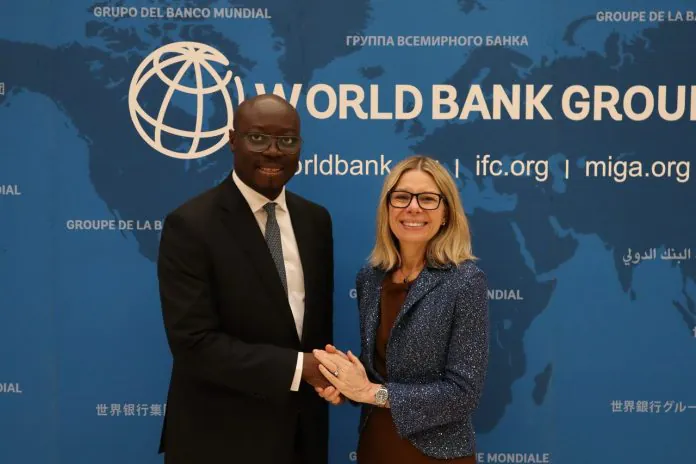Our Terms & Conditions | Our Privacy Policy
Ghana and World Bank Forge Jobs Pact Amid Rising African Debt Concerns
 Image
Image
The World Bank has pledged support for Ghana’s new strategy to address youth unemployment, targeting over 500,000 young people entering the labor market annually, as the West African nation grapples with broader economic pressures linked to rising debt vulnerabilities across the continent.
The agreement, finalized during high-level talks between World Bank Managing Director of Operations Anna Bjerde and Ghana’s Finance Minister Cassiel Ato Forson, centers on a Growth and Jobs Strategy emphasizing skills development, inclusive economic expansion, and private sector engagement. Bjerde described the initiative as a “shared priority” to unlock opportunities for youth, while Forson underscored its role in delivering “decent and sustainable jobs” amid a surge in job seekers.
The announcement coincides with stark warnings from Bank of Ghana Governor Johnson Asiama, who highlighted Africa’s escalating debt crisis during recent IMF and World Bank meetings. Nearly half of Sub-Saharan African countries, he noted, now face high debt distress risks, with interest payments outpacing health and education spending in many nations. Asiama attributed the strain to pandemic fallout, climate shocks, and tighter financing, urging multilateral institutions to bolster concessional funding and debt relief frameworks.
“Per capita spending on debt servicing now exceeds investments in critical social sectors,” Asiama said, calling for enhanced IMF agility, reformed debt sustainability analyses, and coordinated global action to ease fiscal pressures. He stressed that while African leaders prioritize revenue reforms and growth-oriented policies, international partners must expand support through mechanisms like climate-linked debt swaps and streamlined restructuring processes.
The dual narratives of Ghana’s jobs push and continental debt woes reflect intertwined challenges for economies balancing immediate development needs with long-term stability. Analysts note that initiatives like the World Bank-backed strategy may offer near-term relief, but sustained progress hinges on resolving systemic issues such as access to affordable credit and climate resilience financing a tension likely to dominate policy debates as African nations navigate post-pandemic recovery.
The World Bank’s involvement in Ghana marks its latest effort to counter youth unemployment, a persistent threat to social cohesion in a region where 60% of the population is under 25. Success, however, may depend on parallel efforts to curb debt-driven austerity, a reality underscoring Asiama’s appeal for “stepped-up international cooperation” in redefining development finance.
Send your news stories to newsghana101@gmail.com
Follow News Ghana on Google News
Images are for reference only.Images and contents gathered automatic from google or 3rd party sources.All rights on the images and contents are with their legal original owners.



Comments are closed.